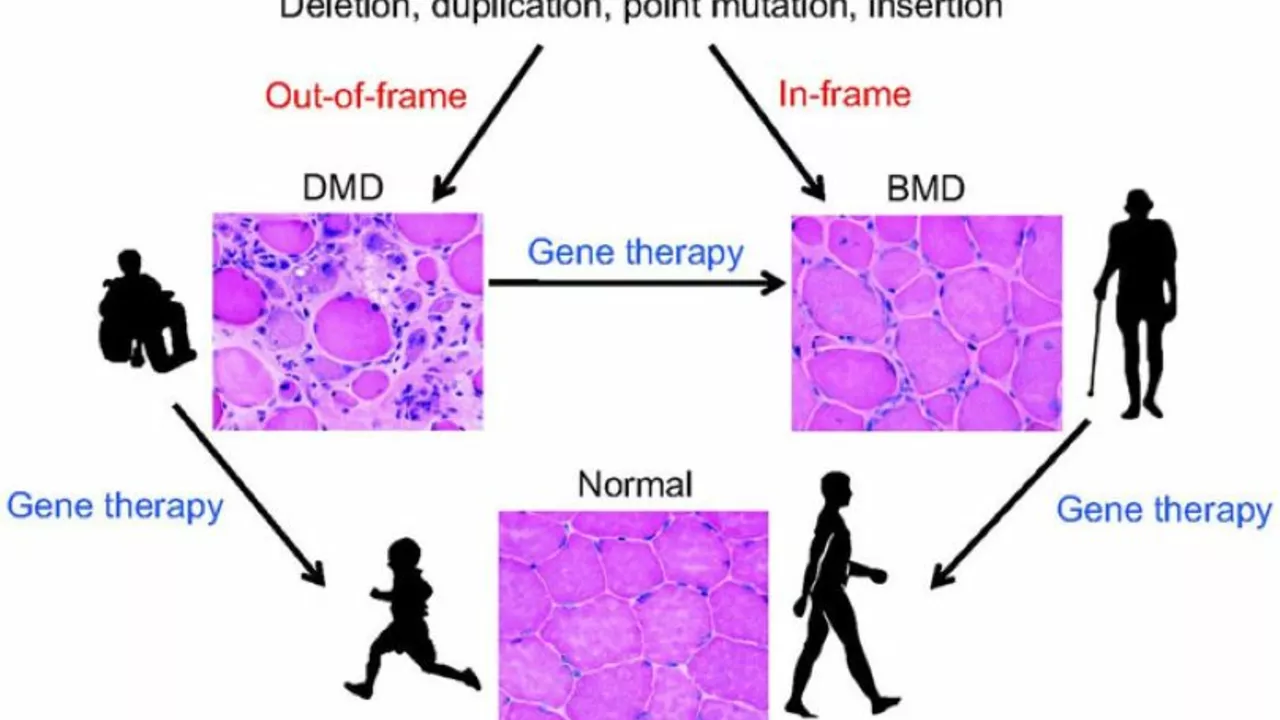Understanding Duchenne Muscular Dystrophy
Getting a diagnosis of Duchenne Muscular Dystrophy (DMD) for your child is a devastating event. I remember when I first heard the news, I felt like the world had stopped turning. But before we move forward, it's important to understand what we're dealing with. DMD is a genetic disorder characterized by progressive muscle degeneration and weakness. It is one of nine types of muscular dystrophy and primarily affects boys, but can also affect girls in rare cases. In order to battle this condition, we first need to fully understand it.
Coming to Terms with the Diagnosis
Every parent's reaction to a DMD diagnosis will be different. There's no right or wrong way to feel, and it's completely normal to experience a range of emotions. You may feel shock, denial, sadness, anger, fear, or even guilt. Take the time to process these emotions and seek support if needed. Remember, it's okay to grieve. It doesn't make you weak or less of a parent. It makes you human.
Navigating the Medical System
Dealing with the medical system can be overwhelming. There will be a lot of appointments, tests, and medical jargon thrown your way. Don't be afraid to ask questions, seek second opinions, and advocate for your child. Your child's healthcare team should be your partners in this journey. They should be willing to explain everything to you in a way that you understand and make you feel comfortable with the treatment plan.
Managing Your Child's Symptoms
Managing your child's symptoms is a critical part of living with DMD. This includes not only physical symptoms but also emotional and psychological ones. Regular physiotherapy, occupational therapy, and medication may be necessary. At the same time, providing emotional support, promoting independence, and maintaining a positive environment at home are equally important.
Planning for the Future
Planning for the future is undoubtedly challenging when dealing with a progressive disease like DMD. But it's important to remember that every child's journey with DMD is different. Many children with DMD live into their 30s and beyond. With advancements in research and treatment, the future is more hopeful than ever. Start by setting short-term goals and gradually move towards long-term plans.
Maintaining a Positive Attitude
Staying positive doesn't mean ignoring the reality of DMD. It's about focusing on the good days, celebrating small victories, and cherishing every moment with your child. A positive attitude can help your child feel loved and supported, and it can also benefit your mental health. Remember, your child is more than his diagnosis. He still has the same dreams, interests, and personality. Encourage him to pursue his passions and live life to the fullest.
Finding Support and Community
You're not alone in this journey. There are many parents out there who are going through the same things as you. Reach out to local support groups, online communities, and non-profit organizations. They can provide valuable resources, advice, and emotional support. Remember, it's okay to ask for help. It's not a sign of weakness, but a strength.
Self-Care for Parents
Finally, don't forget to take care of yourself. You can't pour from an empty cup. Self-care is not selfish, it's necessary. Whether it's taking a few minutes each day to meditate, read a book, go for a walk, or enjoy a cup of coffee, do something that makes you happy. You're doing the best you can, and that's enough. You are a superhero in your child's eyes, but even superheroes need a break.






Kenny ANTOINE-EDOUARD
July 26, 2023 at 18:13
First and foremost, assembling a multidisciplinary team-neurologists, physiotherapists, cardiologists, and genetic counselors-creates a solid foundation for navigating the complexities of Duchenne Muscular Dystrophy.
Each specialist brings a unique perspective, allowing you to make informed decisions that balance medical necessity with quality of life.
Remember, the best outcomes often arise when communication flows freely between caregivers and professionals.